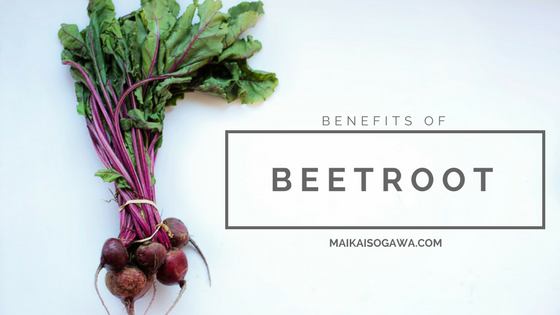I’m in Russia. At any restaurant, grocery store, and even the kitchen at work, you can’t go a day without the sight and smell of beetroot. Such a vibrant food will leave anything within a two-meter radius stark red and vibrant.
What is beetroot, and what is it good for? I’ll watch as my coworkers down 16 ounce cups of neon pink beetroot juice, with claims swirling in the air like, “your blood is going to be SO clean.” (Buy a juicer, it will change your life)
You can boil ‘em, mash ‘em, or put ‘em in a stew. I did some research on this thing that’s infiltrated my life.
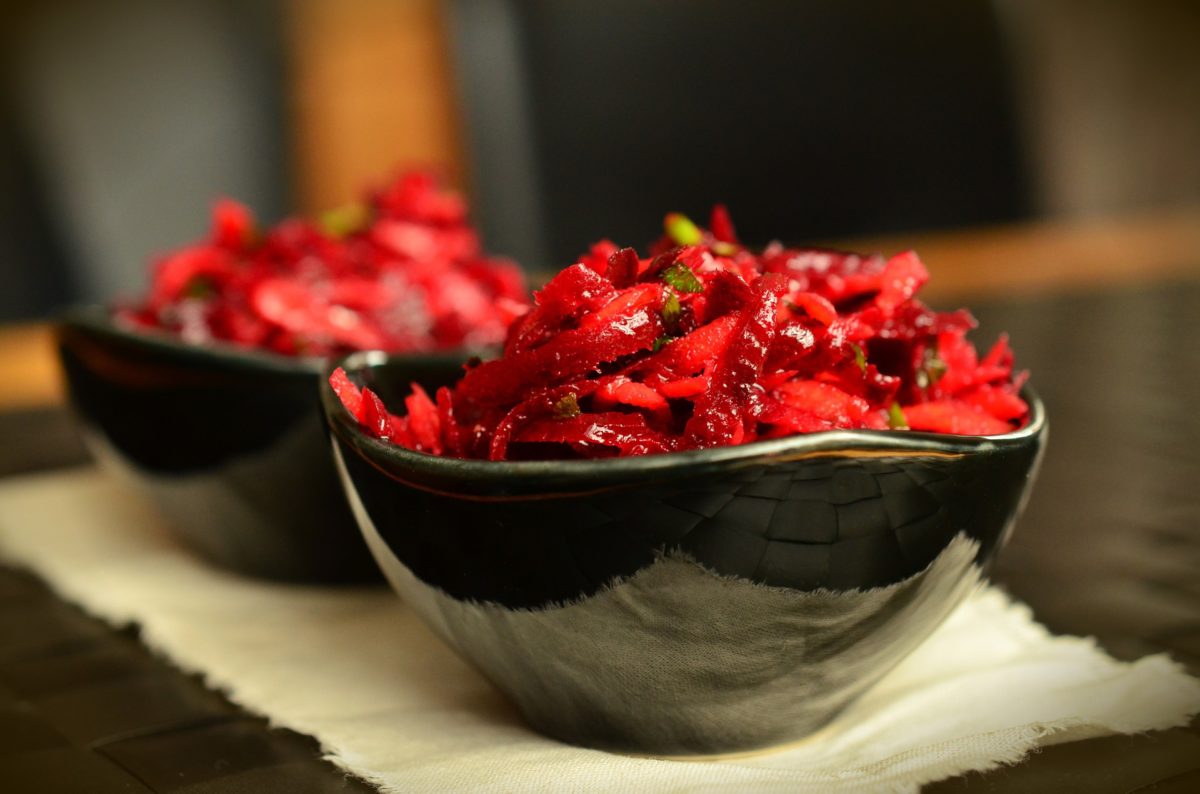
…
Beetroot, also commonly known as beet, is the taproot portion of the beet plant. In addition to being eaten, beetroot is also used for food coloring, as a medicinal plant, and for other purposes. A lot of beet products are made from other varieties such as sugar beet, which is nutritionally different from the beetroot. Proceed with proper caution.
Bite-Sized History
Beets have been around for a long time. In the middle ages, it was used as a treatment for an assortment of conditions, especially digestion and blood-related illnesses.
At one point wine was colored with beetroot juice.
Nutritional Breakdown (raw)
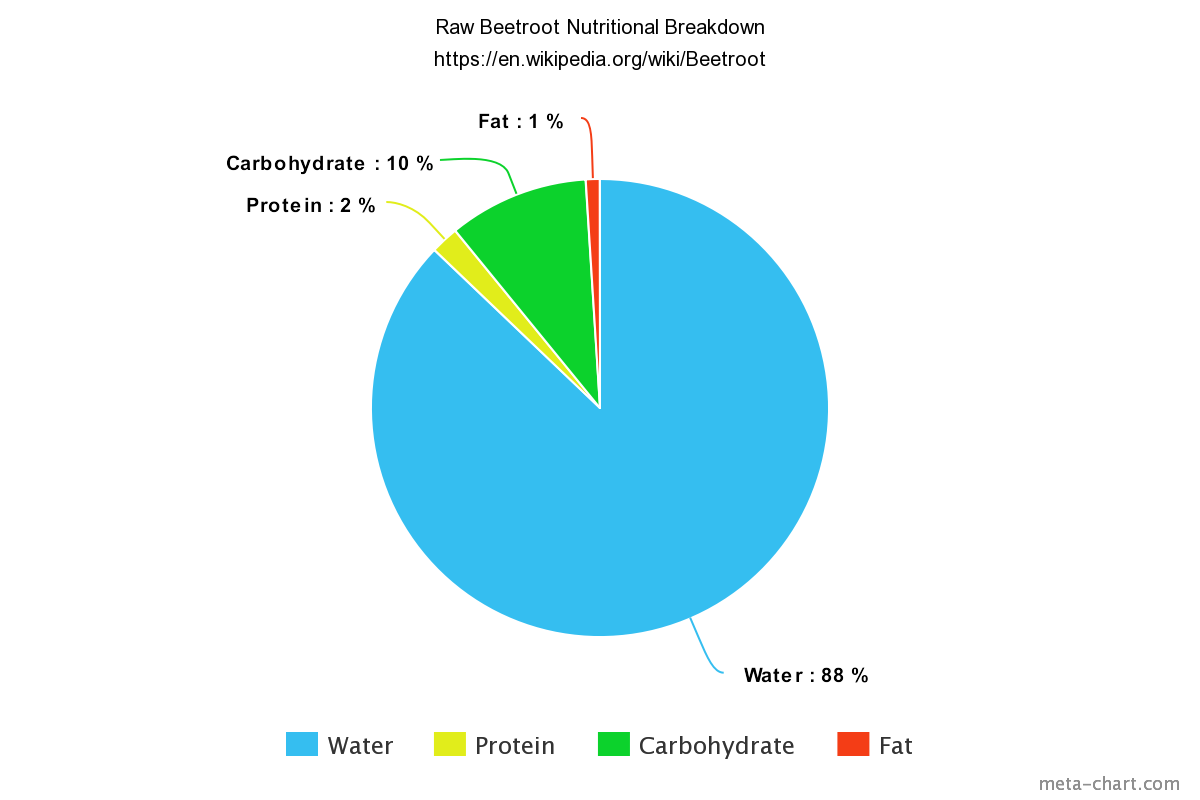
Raw beetroot is 88% water, 10% carbs, 2% protein, and <1% fat.
In 100 grams (3.5 oz), that’s: 43 calories, 9.56g carbs (6.76g sugars, 2.8g dietary fiber), 1.61g protein, and 0.17g fat.
Vitamins & Minerals
Beetroot contains an impressive list of vitamins and minerals that are important to overall biological function and health. I’ll go more into depth about specific applicable benefits of beetroot, but here’s a general list for those nerds out there. % are based off US recommendations for adults. Units are in micrograms (μg) and milligrams (mg). I’ve also linked to all of the vitamins & minerals specific Wiki pages if you prefer to have more specific information about each.
- Vitamin A equiv. 2 μg (0%)
- Thiamine (B1) 0.031 mg (3%)
- Riboflavin (B2) 0.04 mg (3%)
- Niacin (B3) 0.334 mg (2%)
- Pantothenic acid (B5) 0.155 mg (3%)
- Vitamin B6 0.067 mg (5%)
- Folate (B9) 109 μg (27%)
- Vitamin C 4.9 mg (6%)
- Calcium 16 mg (2%)
- Iron 0.8 mg (6%)
- Magnesium 23 mg (6%)
- Manganese 0.329 mg (16%)
- Phosphorus 40 mg (6%)
- Potassium 325 mg (7%)
- Sodium 78 mg (5%)
- Zinc 0.35 mg (4%)
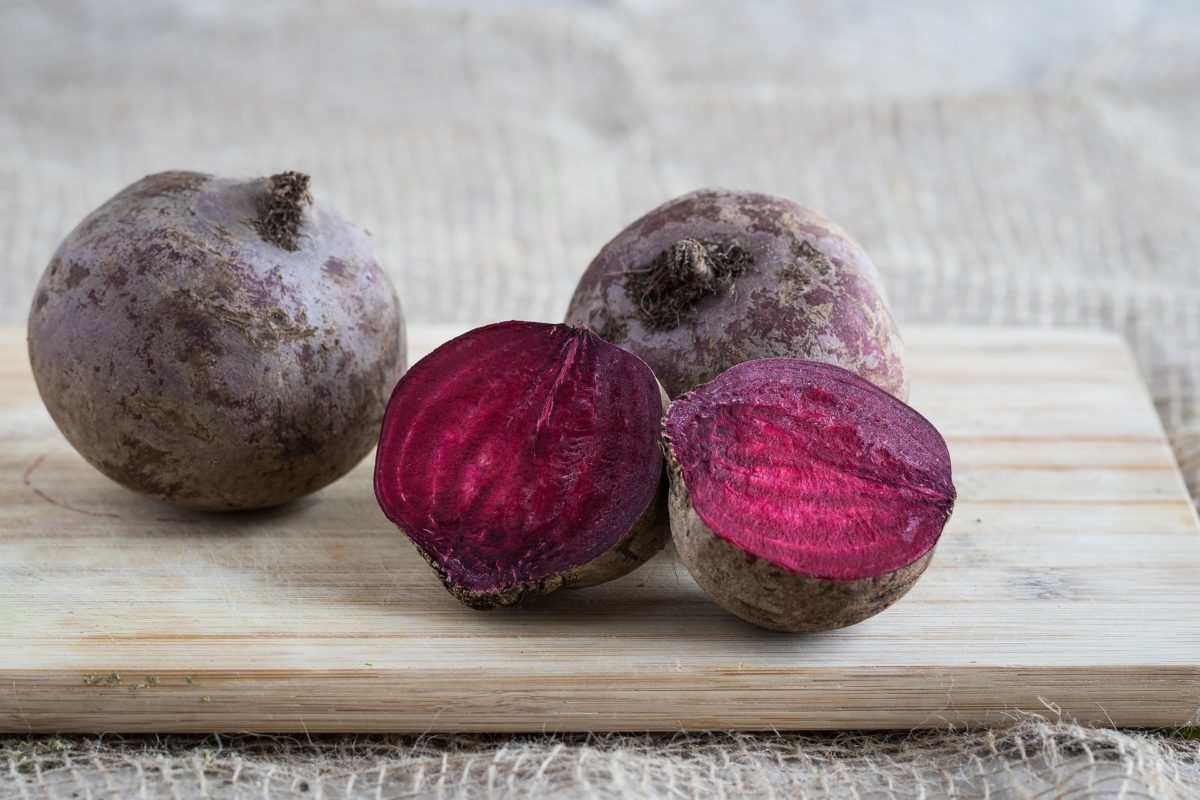
Health Benefits and Claims
The big three: beetroot juice can improve athletic performance, lower blood pressure, and increase blood flow.
By simply eating more plant roots, beetroot included, studies have shown a decrease in risk of obesity, overall mortality, diabetes, and heart disease. Also promotes healthy complexion and hair, increased energy, and overall lower weight. (*)
[^ Ok, but can you also see the issue with the paragraph above? ^]
Beetroot has a high fiber content (if you eat it whole and un-juiced), so it can help prevent constipation, and promote regularity and a robust digestive tract.
Choline, a nutrient in beets, helps with sleep, muscle movement, learning, and memory.
This all sounds great! And most likely, eating a whole plant food like beetroot will likely help maintain your healthy and vibrant human systems. But it’s important to know the difference between general health claims and the actual research that has been done. You can take the information above and easily come up with a catchy title: “Eat beets to lose weight, become a superstar track athlete, and live forever!”
Preliminary Research
So does the data and science actually back any of this up?
Well, beetroot isn’t on the ‘important’ list for researchers, so there really isn’t much scientific data in controlled trials to get an unbiased view on the effects of beetroot. This is the extent of the info so far:
It reduced blood pressure in hypertensive animals (**)
Thus, it may also have an effect on cardiovascular disease. Dietary nitrate supplementation (from beets, other veggies, etc) may also improve endurance exercise performance. (***)
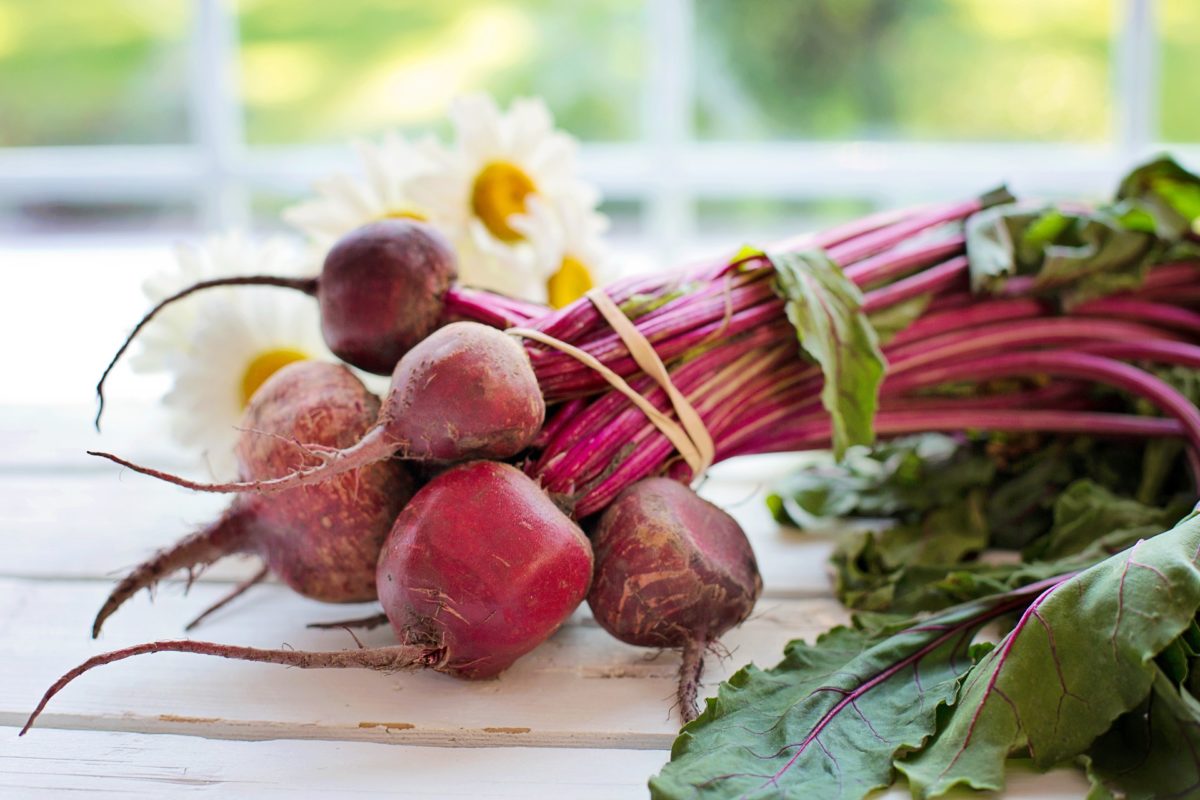
Why Is THAT Red?
One thing that’s for sure is after a session or two of way too much beetroot, my, e’hem, excretions were reddish in color. (TMI?)
Is this an issue? No, not at all. The red color of beetroot, the compound betanin, isn’t broken down by the body. So voila: you’re not dying. Well you are, but most likely not today.
Moral Of The Story
Beets are good. Whole foods and plants are good. Eat beets, eat whole foods and plants.
…
Do you like beets?
…
21/31 #YearOfChallenge
